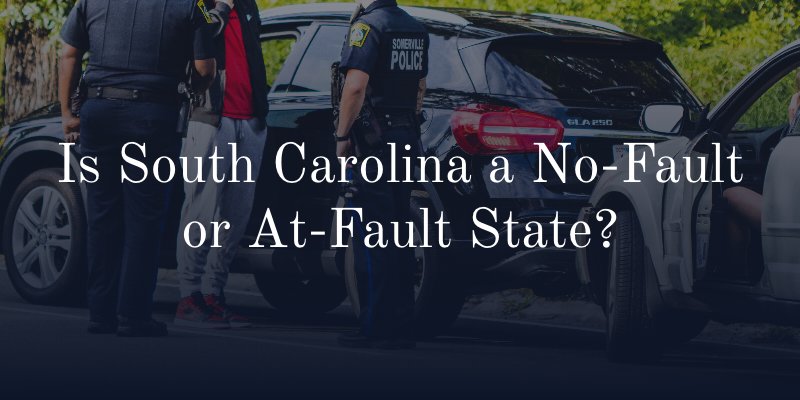Is South Carolina a No-Fault State?
When most people think of personal injury law, they likely think of cases where one party is responsible for paying for the injuries they caused another person. That’s not how it works in a no-fault state. However, South Carolina does not follow the no fault model, so it’s important to determine who was responsible for the accident.

What is A No-Fault State?
A no fault state is one where each party must utilize their own insurance coverage to cover their injuries and financial losses, regardless of who was at fault. If you live in a no-fault state and are involved in a car accident, you would have to file a claim with your own insurance company first.
In states with no-fault insurance, drivers are typically required to carry personal injury protection (PIP) coverage. PIP coverage pays for your medical expenses and any wages lost as a result of being unable to work due to your injuries. In some states, PIP coverage also pays for funeral expenses and damages to your vehicle.
South Carolina is NOT a No-Fault State
South Carolina is not a no-fault state, which means that fault must be determined after a car accident before any claims can be paid out by either driver’s insurance company.
Determining Fault After a Car Accident in South Carolina
After a car accident, the first step is to stay at the scene and contact the police so that an official report can be filed. Once the police arrive on the scene, they will talk to both drivers and any witnesses to get their version of events. The police will also look at the damage done to each vehicle as well as the positioning of the vehicles on the road to determine who is likely at fault for causing the accident.
The next step is to contact the insurance company and file a claim. Your insurance company will then conduct its own investigation into the accident and decide who they believe is responsible for causing the accident. If the other driver is determined to be at fault, their insurance company will likely pay for your damages.
You should always consider calling a personal injury lawyer before speaking with the insurance company, as a lawyer can help make sure you have the strongest case and improve your chances of receiving the compensation you’re entitled to.
Damages Will Be Reduced Based on Fault in South Carolina Personal Injury Lawsuits
South Carolina follows comparative negligence for personal injury lawsuits. Comparative negligence is a legal doctrine that allows parties to recover damages even if they are partially at fault for an accident, as long as they are not more than 50% at fault for the accident.
If it is determined that you are partially at fault for the accident – but less than 51% – your damages will be reduced by your percentage of fault. For example, let’s say you’re injured in a car accident and the court finds that you are 25% at fault. If your damages total $10,000, you will only be able to recover $7,500 from the other party because your damage award will be reduced by 25%.
South Carolina’s comparative negligence laws can be complex and confusing, but it’s important to understand how they work if you’ve been injured in an accident. If you have any questions about your specific case or need help navigating the legal process, contact us today to speak with a Charleston car accident lawyer.
